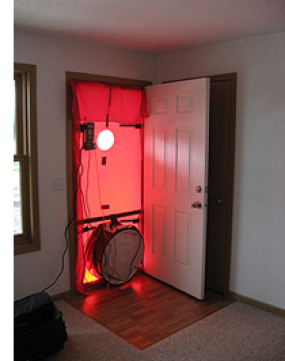
Assess: Home Energy Audits
 Just like cars can benefit from regular tune-ups, most homes can benefit from energy efficiency improvements. To identify the most worthwhile improvements for your home, consider a whole-house energy audit. There are different ways to go about this:
Just like cars can benefit from regular tune-ups, most homes can benefit from energy efficiency improvements. To identify the most worthwhile improvements for your home, consider a whole-house energy audit. There are different ways to go about this:
- Check with your local government or utility if free or rebated energy audits are available and for assistance with finding qualified auditors. Depending on your income and circumstances, you may also qualify for weatherization assistance, in which case your local weatherization agency will help you set up an energy audit.
- Professional Audit: Energy auditors can detect weak links among your homess air sealing, insulation, windows, ducts, etc. Equipment such as infrared cameras and blower doors helps auditors find hidden energy efficiency opportunities. Energy auditors may perform some immediate air sealing and refer you to specialized contractors for major tasks such as window upgrades.
- Self Audit: A self-audit may be adequate if you are looking for basic weatherization measures such as caulking or weatherstripping. To learn more, check the Department of Energy’s Energy Savers site.
Choosing Home Improvement Measures
Your energy audit will most likely result in a list of several recommended energy efficiency measures. Unless your choice is determined by financial assistance criteria, your choice may depend on your preferences, such as expected energy savings, comfort benefits, durability and affordability. The federal tax credit for home energy efficiency improvements and utility and state incentives may lower the cost of some measures, including window replacement.
Energy efficiency upgrades can be most effective if you consider your options in combination rather than as stand-alone items. For example, more efficient windows may allow you to cool your home with smaller cooling equipment, so it is helpful to consider the windows before replacing the central AC. On the other hand, when considering window upgrades it is best to take a close look at the condition of the walls around the window and to address air leakage and condensation risks while accounting for ventilation needs. Improving home performance may be complex, but your energy auditor can help you make decisions that result in a more comfortable and healthy home with lower energy bills.
Finding a Qualified Energy Auditor
Your utility company, state energy program or local weatherization agency may have suggestions for qualified energy auditors. Also take a look at the following resources:
- The ENERGY STAR® web siteexit disclaimer offers a directory of home energy raters who are qualified to perform comprehensive energy audits. This web site also shows whether your area offers Home Performance with ENERGY STAR, a program that involves trained contractors who evaluate homes for cost-effective energy efficiency opportunities.
- The Building Performance Instituteexit disclaimer (BPI) certifies trained contractors for energy efficiency improvements. The BPI web site includes a certified contractors directory.
- RESNET®exit disclaimer, the Residential Energy Services Network, maintains a directory of energy raters and auditors with different levels of certification.